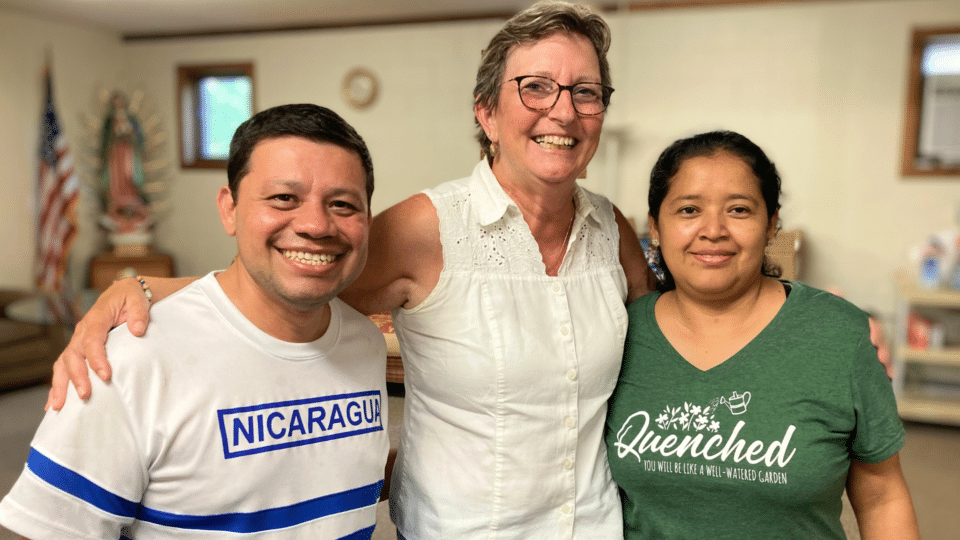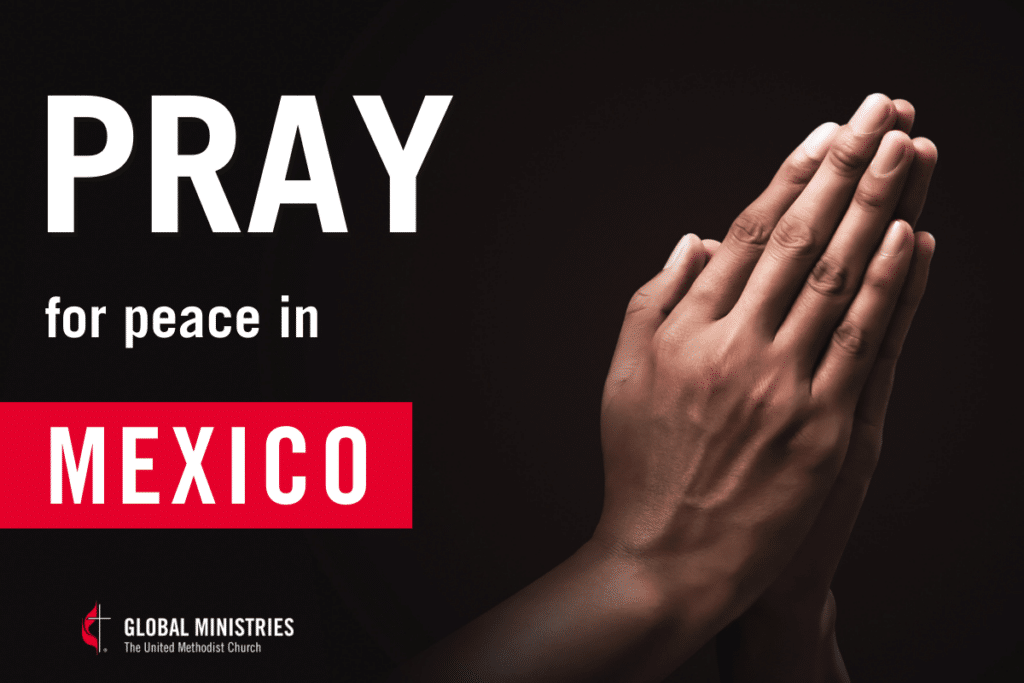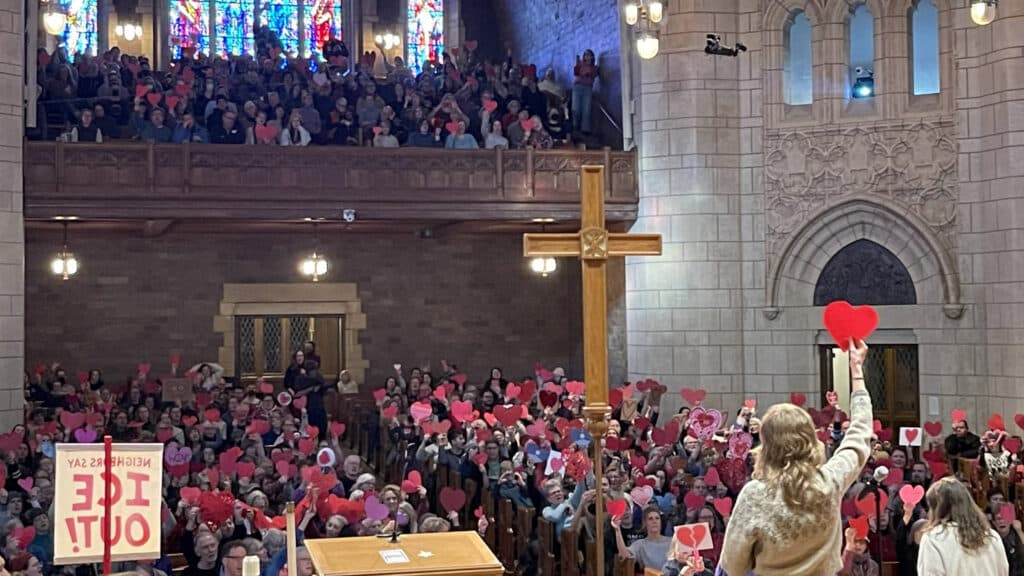PANAMA CITY — “It is a large Methodist family that is gathered here today, with many members, each with our own personality,” said Roland Fernandes, general secretary for the general boards of Global Ministries and Higher Education and Ministry, addressing the 86 participants assembled for a mission consultation for Latin America and the Caribbean, held July 21-23 in Panama.
Bishops, pastors and laity from across the Methodist connection in Latin America, the Caribbean and several other countries discussed the future of mission collaboration and connectional relationships with Global Ministries, Higher Education and Ministry (GBHEM), the Council of Bishops of The United Methodist Church (UMC), the Council of Evangelical Methodist Churches in Latin America and the Caribbean (CIEMAL), the Methodist Church in the Caribbean and the Americas (MCCA), and other individual churches and mission partners. The full assembly of participants represented 40 partners across the region, including seven regional partners and seven pan-Methodist partners.
“Just as a good family makes room for all and allows each one to share his or her gifts with the others, so Methodism in the Americas has room for each of us to contribute our own gifts to the mission of God,” said Fernandes.
Fostering a regional presence
Recognizing the diversity that has always characterized Methodism in the region, participants considered what they could do together, all offering what they can for the sake of God’s mission in Latin America and the Caribbean and beyond.
Pre-consultation conversations focused on eight themes: mission; youth and young adults; gender-based violence and child protection; education; climate justice and health; poverty and migration; financial accountability; and peacebuilding. These discussions laid the groundwork for continued dialogue at the consultation, where attendees explored ways to support faith formation among young people, promote justice, enhance regional communication and strengthen intergenerational leadership, among other topics.
“We needed and believed it was very important to be able to meet as a region and be able to identify strategies, identify important things for the development of the mission in our country and in Latin America,” said Bishop Pedro Araúz Valdéz of the Evangelical Methodist Church of Panama (IEMPA).
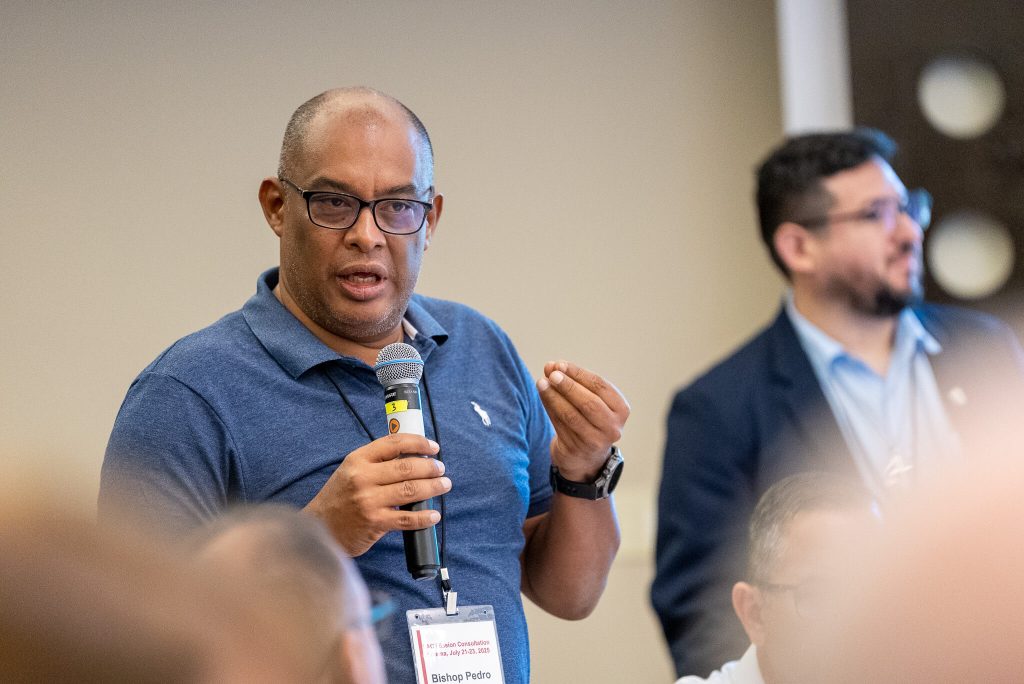
There was broad agreement that the strength of Methodist churches could be enhanced by fostering a regional presence and a connected infrastructure through dialogue and ecumenical cooperation. This could provide an opportunity to rethink the roles of regional organizations, such as CIEMAL and the Council of Bishops of CIEMAL.
Listening and building relationships
The desire to better listen to and build relationships with partners has been a hallmark of Fernandes’ leadership since he became general secretary of Global Ministries in 2020 and Higher Education and Ministry in 2024. The agencies organized major mission consultations in Africa and the United States in 2023. “Having a consultation with mission partners in Latin America and the Caribbean seemed the next essential part of this process,” he said, as he expressed the agencies’ desire to learn from those in attendance.
This consultation was the most expansive meeting of Methodist mission partners in the region in recent decades. Acknowledging that partnerships are shaped by the past, Fernandes recalled two key themes from a similar 2007 Panama meeting: 1) redefining and deepening connectionality to strengthen relationships and support the church’s mission and 2) fostering open communication.
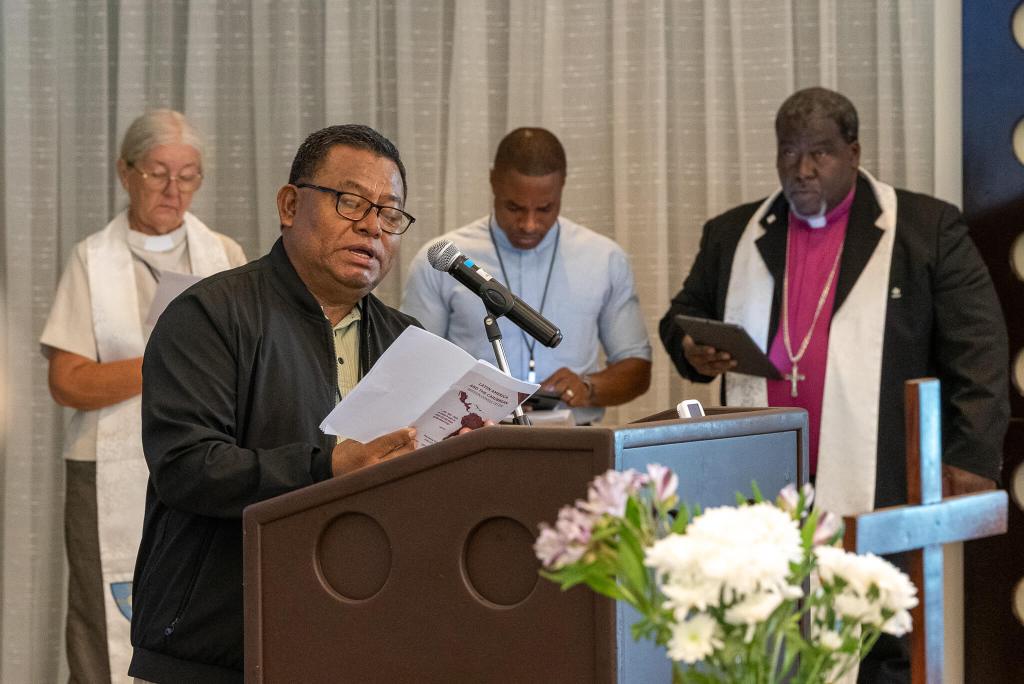
Coming together as Methodists throughout the Americas fits with work that the Council of Bishops of the UMC has been doing through its Ecumenical Office to strengthen and renew relationships with the church’s autonomous affiliated sister churches. This work also aligns with a desire by CIEMAL to strengthen and renew relationships in the region following disruptions from the COVID-19 pandemic.
Bishop Tracy Smith Malone, president of the UMC Council of Bishops, spoke of a new era emerging for the church. “God is calling us to grow and form disciples of Jesus Christ, to develop Christlike leaders, to stand in solidarity with the poor.” She spoke of Jesus’ call to bring good news of hope and salvation to a world yearning for God’s grace, mercy, love, compassion, justice and peace and to live humbly with the oppressed and marginalized.
Challenges and opportunities
Daily worship brought prayer, reflection and familiar hymns played with joyful Caribbean rhythms. Participants paused in reverence to honor those who had gone before them, lighting candles in memory of lives whose enduring light continues to illuminate the path forward.
Inspired by Luke 10:1, in which Jesus “…sent them on ahead in pairs to every city and place he was about to go,” participants discussed common challenges for their individual contexts and opportunities for greater collaboration among their respective churches.
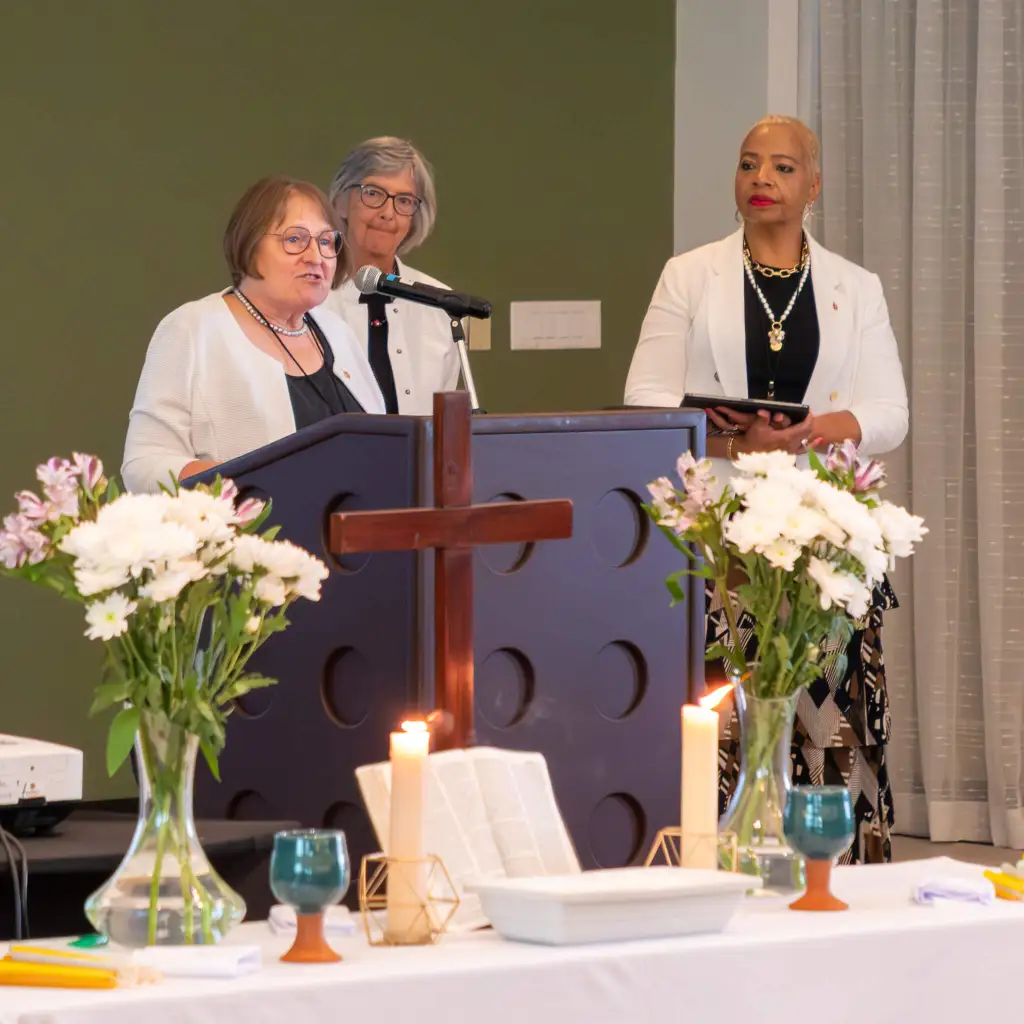
“The task and mission of the church is to go beyond the four walls, to go where the need is, to seek out the man who is living, the woman who is experiencing moments of difficulty,” said Bishop Jorge Merino Riffo of the Methodist Church of Chile. “I believe that this is the task and the mission that the church in Latin America, the Methodist Church, must continue to fulfill, transforming itself into a space of hope amidst despair.”
Bishop Héctor A. Burgos-Núñez of the Upper New York and Susquehanna conferences of the UMC said, “This has been a time of building and strengthening relationships, learning together about our missional realities and beginning to dream together our next fateful steps.”
Bishop Lizzette Gabriel Montalvo of the Methodist Church of Puerto Rico praised the active listening throughout the consultation, suggesting it must now be followed by concrete actions. “This is not just another meeting. This is a blessed moment that can be fruitful. I trust that in the near future we can return through connectionality as witnesses of God’s mission in all our contexts,” she said.
Called to be in mission together
In closing remarks, Fernandes noted that listening and learning are key aspects of mutuality in mission. He offered thanks for the active dialogue and ideas exchanged throughout the consultation and committed to facilitating the next meeting follow-up, including soliciting feedback on the gathering and issuing a full report documenting key takeaways to serve as a blueprint for prioritization. “We have been called to this,” he said, referencing the disciples’ joyous return in Luke 10:17.
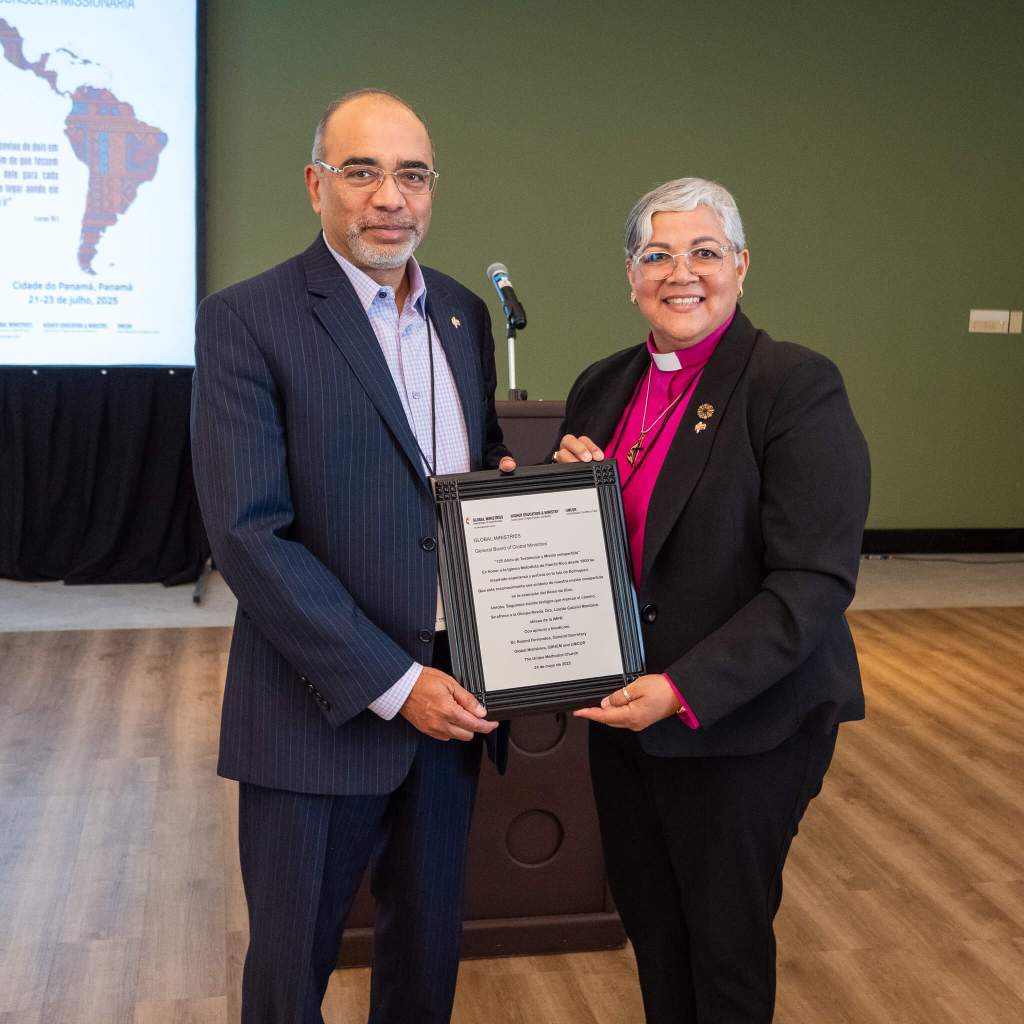
Fernandes thanked the event facilitators, staff organizers and hosts — Bishop Valdéz of IEMPA and Bishop Antonio Miguel Trottman Migar of the Panama/Costa Rica District of MCCA, as well as the support of Bishop Montalvo, president of the Council of Bishops of CIEMAL, Bishop Juan de Dios Peña as the president of the Executive Committee of CIEMAL, and Bishop Malone, president of the Council of Bishops of the UMC and all other distinguished bishops and church leaders in attendance and joining online. (Legal restrictions and visa challenges forced participants from Venezuela and Haiti to virtually attend the consultation and concurrent MCCA women’s meeting.)
During closing worship, an agape meal included the sharing of sweet milk and bread in the tradition of the early church. And as worship concluded, participants joined hands in friendship, celebrating the presence of God felt throughout the gathering, a presence that will continue to guide next steps.
Susan Clark is the chief communications officer for Global Ministries and Higher Education and Ministry.

